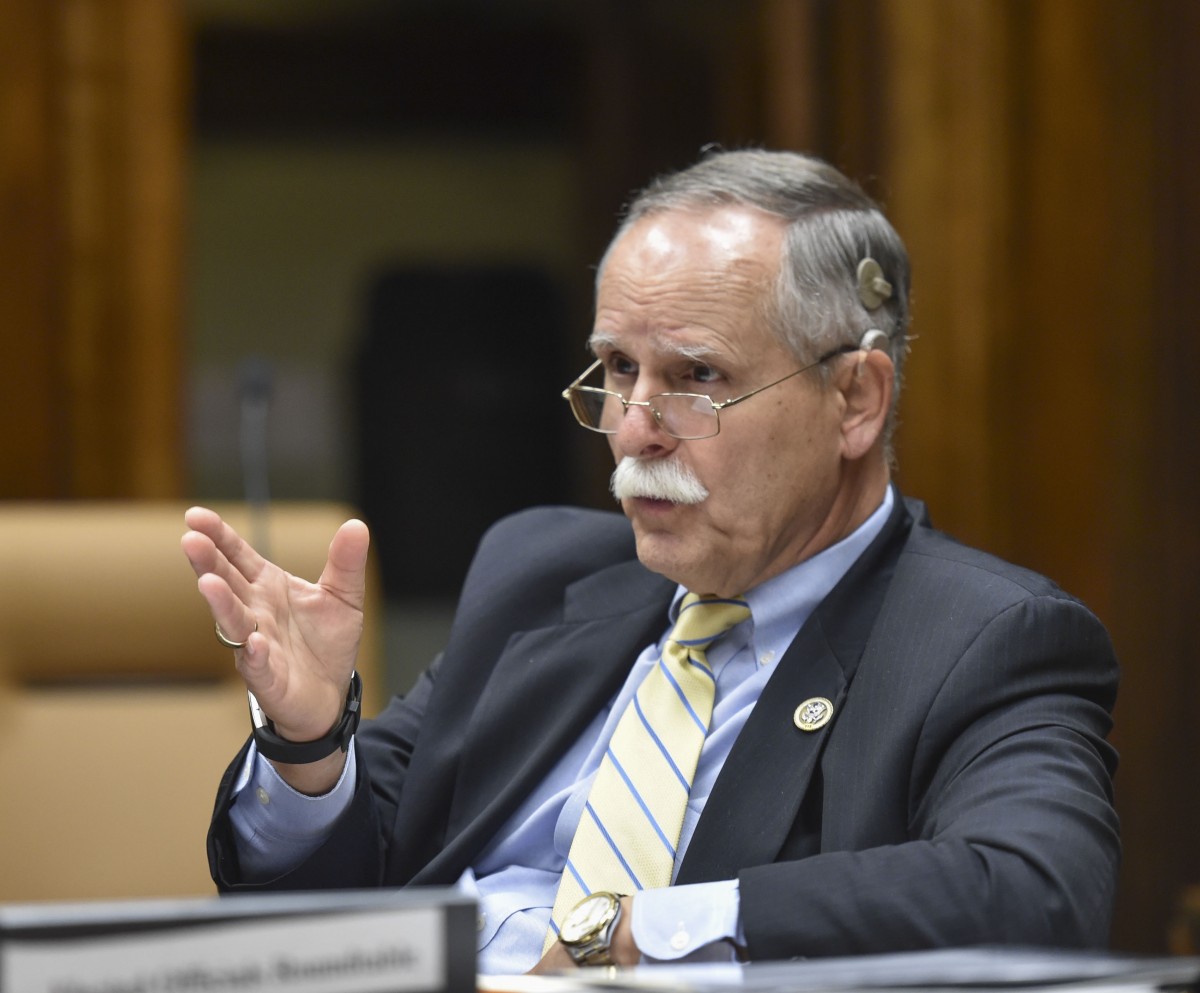MORGANTOWN — Rep. David McKinley, R-W.Va., made a swing through Morgantown last week on his way home to Wheeling for the Congressional Easter break. He talked with The Dominion Post about some of his latest efforts along with issues pertinent to the 1st District.
McKinley said he spoke to an engineering group in Morgantown about using engineering principles to solve problems.
The first one on his mind is clean energy and greenhouse gas. Agree that human activity is affecting the environment.
“What are we doing about it? I think we have two choices.” One is to take the Green New Deal approach. “We could do away with it … but we’re not there on renewables yet.”
That would just turn the economy upside down and produce grid instability with no benefit if other nations, particularly China and India, don’t pitch in. “The glaciers will still melt.” We’ll still have disasters.
So we should figure out how to reduce CO2 emissions in an affordable manner that can be marketed to other countries still driven by and expanding coal power.
He recently spoke with Indian Prime Minister Narendra Modi about India’s emissions, he said. Modi told him India has 1.2 billion people, and 300 million of them – more than the entire U.S. population – have no electricity.
Modi told him, “If I listen to what you keep telling me [to lower emissions] I’ll have 600 million people without electricity.” Technology like that at the Longview power plant is simply too expensive to transfer.
So McKinley is working with the Department of Energy on a bipartisan bill to reverse the direction of setting unachievable regulatory standards. His idea is to go 10 years with no new no regulations, pause environmental lawsuits, and give researchers such as those at NETL 10 years of unlimited resources to come up with solutions.
He cited the example of the small-scale NET Power experimental plant in Texas. The zero-emissions plant is in the final stages of testing before gearing up to commercial scale.
At the end of that period, he said, use their work to pose achievable, cost-effective, efficient science-based standards and get buy-in around the world for other countries to adopt them.
A second application of using engineering principles to solve problems, he said, deals with healthcare. He’s still in the very early stages of considering this.
The essence though is that healthcare is expensive and a considerable part of that cost is prescription drugs.
For an engineer, “If a building’s failing, you don’t just put a patch on it, you don’t renovate. You go back and find out what’s the core problem.”
So with healthcare, he said, target one or two major diseases driving up treatment costs and devote more money and research to finding the cause of and stopping it at the front end. That could save hundreds of millions of dollars.
McKinley dealt briefly with the ethane storage hub posed for this area to support a regional petrochemical industry. “I’ve been on the ground floor with that for six years now,” and he’s pleased the Department of Energy has lent some support.
We need to be sensitive to environmentalist concerns and see through their eyes, he said. “I hope they can look through our eyes as well. None of us are trying to poison the atmosphere.”
But we have to take care about shutting off fossil fuels. “About 65 percent of our energy now is coming from coal or gas. That’s not insurmountable but it’s a huge hurdle for someone to naively suggest that in the next 10-12 years we can replace 65 percent of our energy sources with renewables. It’s not practical.”
That led him to talk briefly about an energy-related battle slowly brewing concerning interstate commerce. Three state governors — two Democrats, one Republican — are possibly violating the Constitution with their actions.
The Democrat governor of Washington is blocking shipments of Crow Nation coal across the state to Seattle ports for shipment to China. A multi-state lawsuit is coming together over that.
The GOP governor of Maryland is blocking a natural gas pipeline from Pennsylvania across a 3.5 mile stretch of Maryland to West Virginia’s Eastern Panhandle.
And in New York, the Democrat governor won’t allow a gas pipeline across the state to New England, so those states are importing liquid natural gas from Russia. “Hello, think about that.”
Not being a lawyer, he can’t say for sure it’s an interstate commerce issue. He can say, “It’s a very interesting fight.”
Tweet David Beard @dbeardtdp Email dbeard@dominionpost.com




